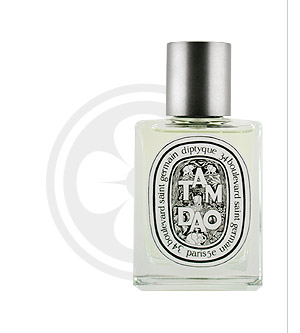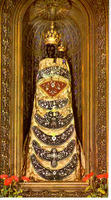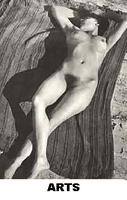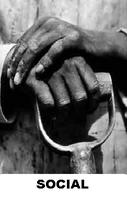
I am an emotional and passionate girl—this is a matter of fact. At times, you could even define me a bit sentimental. After all, I grew up being fed with those extremely pathetic Latin American soap operas which my mum and her mother in law used to watch religiously. Nowadays, I try to disguise my emotions wearing the professional mask, but I can't always conceal or put them in perspective in my private life—for good and bad.
Today I had a very interesting, educative and touching experience. I interviewed with my manager a would-be Editor. It was the very first time I was on *the other side*: the questioner and, ultimately, the official *judge* of the situation. Before the meeting, I felt nervous. I was far more nervous than the (few) times I have been interviewed or the (many) times I attended oral examinations. In this sense, it was an eye-opening experience realising that, after all, an interview is always a conversation between two human beings sharing the same fears and expectations, despite sitting on different positions.
The interview went objectively well, as it was supposed to be. The candidate was a lovely girl, who looked relaxed and politely chatty. This made me feel comfortable and positive towards her since the beginning. My manager introduced the structure of the interview and started asking a few questions about her past experiences stated in the curriculum. She answered exhaustively to all the questions, in a quite wordy manner. She tended to slip away from the core of the matter, but she would catch it up again towards the end of her speech.
The word was then passed on to me , and I described our department, the team she would work within and the role of an Editor within our company. I asked then questions concerning editorial work, time management and interpersonal skills. She never hesitated to answer and she felt like she shouldn't conclude an answer, but keep talking. The whole interview was supposed to last an hour, so we had to jump some questions to keep it within the timeframe and, in several occasions, we had to stop her and move on. However, we certainly got a satisfactory insight of her personality, skills, approach and experiences. She concluded her interview with a copy-editing and spelling test (BTW the same they submitted to me over two years ago!).
I have not had a proper follow-up with my manager yet, but she quickly expressed her thoughts while the girl was working on the test: she complimented with me by saying that I handled it well and was very personal and encouraging, of which I was pleased. But I was not so pleased when she said that she thinks the girl hadn’t enough experience to face our hectic department and that there is not time to train her on electronic publishing. We are in fact looking for someone on a six-month contract basis, to work on a wide list of on-paper and digital products in the busiest period of the year. Sahara (her (fictional) name) is a 26-years old American girl with a limited in-house experience as editorial assistant and freelance copyeditor. In fact, she has never led a project autonomously and she hasn’t got experience in web publishing.
Fair enough. Furthermore, she tended to speak mainly about her past experiences and not in a more general and structured way about how she would act as an Editor within our company—so, in this sense, she was a little bit too specific and retrospective and did not show much flexibility.
Fair enough. But I am sure she would be flexible and adapt very quickly, if only we could give her the opportunity, because her approach to deal with situations was constructive and positive. As stated in her CV, she lost her feet five years ago due to meningitis and this ended her gymnastic career. This demonstrates to me that she did have to adapt to a completely new life style, and she did it well: soon after college, she got a job for an independent publishing house; she was promoted in her job after four months; achieved a master degree with distinction in England; and has kept working on a freelance basis with the same publishing house to date.
Openly speaking, I was really keen on her as a long term investment, and I thought that her personality would bring a positive wave into our department. I will certainly express these feelings and thoughts to my manager. However, honestly speaking, I don’t think they will hire her, at least not for this *urgent* position. Yesterday, apparently they interviewed someone with exactly the same kind of online publishing experience we implement. So, a person with specific skills for a specific short-term role, the right tool for the right job, a drastic need call for a drastic solution... I only hope that she will get a constructive feed-back, and I will endeavour for ensuring one.
 Tam Dao, my Autumn choice.
Tam Dao, my Autumn choice.










